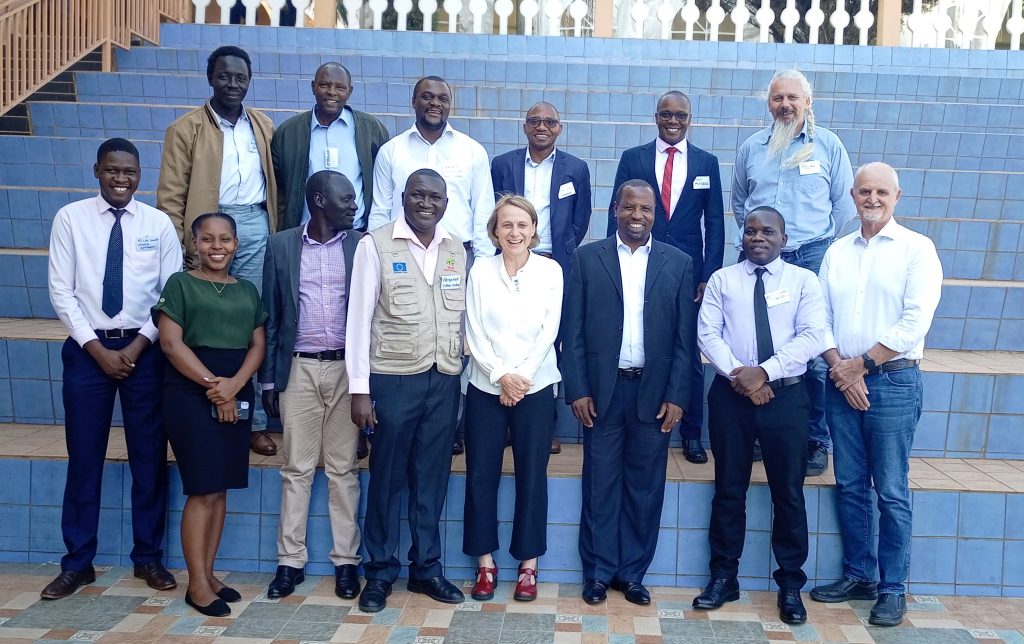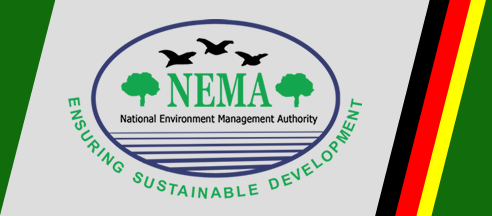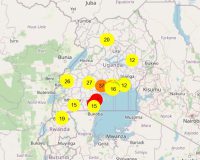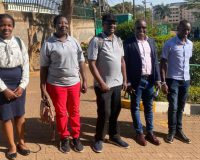July 19, 2023 – The National Environment Management Authority (NEMA) actively participated in a Regional Knowledge Sharing workshop alongside key wildlife conservation stakeholders. The primary focus was to explore the roles and opportunities for farmers and District Local Governments in promoting biodiversity conservation.
The workshop had several important objectives: first, to assess the status of connectivity and integrity of natural ecosystems in East Africa; second, to identify the threats and opportunities concerning biodiversity conservation in the region; third, to review existing agricultural practices and their impact on biodiversity loss and conservation; fourth, to develop strategies to enhance biodiversity on farming landscapes; and lastly, to pinpoint potential policy gaps and propose necessary changes.

This collaborative effort was part of the project, “Harnessing the potential of trees on farm for biodiversity,” led by CIFOR-ICRAF in partnership with the National Environment Management Authority of Uganda and the Rwanda Environment Management Authority. The funding for the project came from the International Climate Initiative (IKI) of the German Federal Ministry for Environment, Nature Conservation, and Nuclear Safety.
Other key participants at the workshop included representatives from the Ministry of Water and Environment, Ministry of Agriculture Animal Industry and Fisheries MAAIF, the National Forestry Authority, Uganda Wildlife Authority, Development Partners and Civil Society Organizations.
CIFOR-ICRAF, formed in 2021, is the result of a merger between the Centre for International Forestry Research (CIFOR) and the International Centre for Research in Agroforestry (ICRAF). These two CGIAR partners have a research focus on trees, forestry, and agroforestry. Their mission is to address critical global challenges, including deforestation and biodiversity loss, climate change, food system transformation, sustainable supply chains, and social inequalities.

The Kunming-Montreal Global Biodiversity Framework, which emerged recently, recognizes the significance of managed lands in biodiversity conservation and restoration, creating a favorable opportunity for the agricultural sector to contribute to the solution.
One of the long-term goals for 2050 concerning global biodiversity envisions maintaining, enhancing, or restoring the integrity, connectivity, and resilience of all ecosystems. This includes significantly increasing the area of natural ecosystems to halt the human-induced extinction of threatened species.
The “Trees on Farm” (TonF) initiative focuses on integrating woody perennials into agricultural systems, encompassing both trees in animal husbandry farmlands and trees on cultivated fields. TonF is recognized as part of ‘farm forestry’ in the Uganda Forestry Policy (2001), with 72% of the country’s total land area under agriculture. However, the true potential and geographical coverage of TonF and related attributes remain underappreciated and poorly understood.
TonF offers numerous benefits, such as addressing the scarcity of timber in Uganda due to high demand in the formal and informal sectors. Moreover, it meets over 92% of the household biomass demand in the form of firewood and charcoal. Additionally, TonF plays a crucial role in commercial activities like brick production and energy generation in certain factories. Through agroforestry practices, TonF contributes to food security by enhancing soil and water conservation, improving crop yields, and providing direct nutrition through fruits and nuts.

Notably, over 6,200 hectares of TonF have been planted to date, capable of sequestering approximately 1.3 million tons of carbon dioxide. This represents a significant contribution to Uganda’s Nationally Determined Contribution under the Paris Agreement. TonF’s other contributions include fodder, shelter, soil erosion control, soil fertility improvement, watershed management, medicinal uses, and windbreaks, each with its own value chain.
Following the workshop, the participants put forth several key recommendations. They emphasized the need to integrate the importance of Trees on Farm into forestry policy and legislation, as well as strengthen data collection related to TonF. Furthermore, they advocated for incentives to promote the planting, growth, and protection of trees on farms as vital climate change mitigation and adaptation measures. Lastly, they called for increased public awareness about the significance of Trees on Farm.





